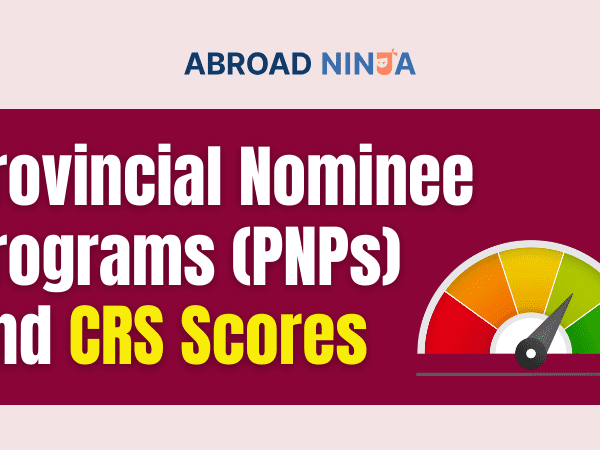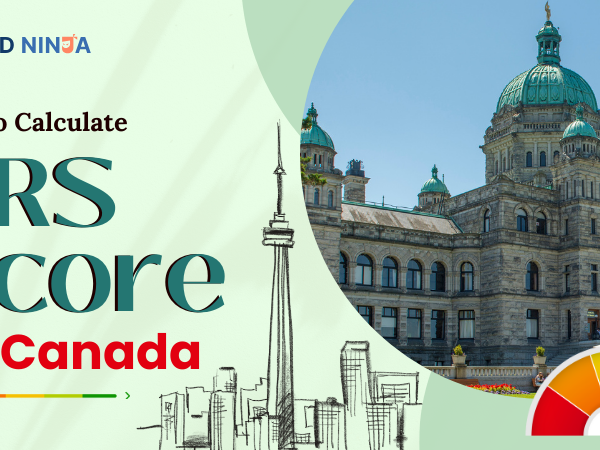Want to increase your chances of permanent residency in Canada? You’ll need to up your Comprehensive Ranking System (CRS) score! Here’s how:
- Language proficiency is key. Take language tests like IELTS or TEF for a score boost.
- Education is also vital. Get an Educational Credential Assessment (ECA). Give yourself extra points by continuing studies in Canada.
- Work experience in Canada adds valuable points. Look for job opportunities related to your background, and consider the Canadian Experience Class (CEC).
- Adaptability factors can help, too. Your partner’s Canadian education or work experience can add points to your profile. And a valid job offer from a Canadian employer? That’ll give your CRS score a big jump.
- Stay up-to-date with Express Entry requirements and scoring systems so you can plan and maximize your score. It’s a lot of work, but it’s worth it!
Understanding CRS Score for Express Entry
To comprehend the significance of CRS score, take a peek at the table below. It shows the categories and their points:
| Category | Maximum Points |
|---|---|
| Age | 110 |
| Education | 150 |
| Work Experience | 80 |
| Language Proficiency | 160 |
| Adaptability | 10 |
Each category has a point value. The higher the points, the more likely to get an ITA. To boost the score, focus on enhancing those areas.
Note the unique details. For instance, having a sibling in Canada as a citizen or permanent resident can award 15 points. Obtaining a job offer from a Canadian employer can also contribute significantly.
Let me tell you a story of Jane. She had excellent language proficiency but average work experience. Though her initial CRS score wasn’t enough, she decided to improve it. She gained work experience in Canada through temporary employment opportunities. This increased her CRS score and she got an ITA.
Understanding the CRS score and striving to enhance it can greatly impact an applicant’s immigration journey. By following strategies, like Jane did, it’s possible to achieve the goal of permanent residence in Canada.
Importance of a High CRS Score
A high CRS score is very important in the Express Entry process. It can be the deciding factor in securing an invitation to apply for Canadian permanent residency. The CRS score shows your eligibility and suitability for immigration, based on factors like age, education, work experience, language proficiency, and more.
Getting a high CRS score provides lots of opportunities to immigrate to Canada. It means you have a better chance of ranking higher in the Express Entry pool and receiving an invitation to apply for PR. This means your dream of living and working in Canada can come true much sooner.
Not only does a high CRS score improve your chances of being selected, but it also makes your profile as an immigrant candidate look better. A strong CRS score shows that you can contribute positively to Canada’s economy and society, making you attractive to employers and communities.
Also, a higher CRS score gives you access to Provincial Nominee Programs (PNP) in Canada. Many provinces have their own immigration programs with lower CRS requirements than the federal Express Entry system.
John Smith is a great example of this. Although he had ordinary scores in most categories, he took extra language courses to increase his CRS score. This had a major impact on his score and he received an invitation from one of Canada’s provinces through their PNP program.
The CRS score is very important for Express Entry and getting permanent residency in Canada. You should understand what affects your CRS score and take steps to improve it. Whether it’s getting better at a language or gaining more work experience, every effort counts in this competitive immigration process.
Factors Affecting CRS Score
Comprehensive Ranking System (CRS) scores are majorly affected by various factors. Examples include age, education, language proficiency, and work experience. Knowing how each factor impacts your CRS score can help you get closer to an invitation for permanent residence in Canada.
Table time! Here’s a breakdown of the factors and their maximum points:
| Factors | Maximum Points |
|---|---|
| Age | 110 |
| Education | 150 |
| Language Proficiency (English/French) | 170 |
| Work Experience | 80 |
| Canadian Education or Work Experience | 50 |
| Spouse/Common-law Partner Factors | 40 |
| Additional Points | 600 |
Age is a big deal – younger applicants get more points. Education and language proficiency also add to the score. Work experience inside and outside of Canada is also good to have. Canadian educational credentials or relevant work experience give you extra points. Lastly, your spouse or common-law partner can give you bonus points if they meet certain criteria.
Pro Tip: Take language tests before submitting your Express Entry profile to maximize your language proficiency points. Also, strive to get Canadian educational credentials or relevant Canadian work experience – this will increase your chances of getting an invitation to apply for permanent residence in Canada.
Steps to Improve Your CRS Score
Enhancing your CRS Score for Express Entry is essential to maximize your odds of being picked for migration to Canada. Here is a step-by-step guide on how to boost your CRS score and better your chances of getting permanent residency.
- Enhance Your Language Ability:
- Take language proficiency tests, such as IELTS or CELPIP, and aim for high marks.
- Think about taking language classes or employing a tutor to refine your language skills.
- Secure Higher Education:
- Pursue further education, like a Master’s degree or Ph.D., in your field of expertise.
- Gain extra certifications or qualifications associated with your profession.
- Gain Canadian Work Experience:
- Submit job applications in Canada and acquire pertinent work experience on a post-graduate work permit or through the Federal Skilled Worker Program.
- Consider internships, co-op programs, or volunteer work to gain valuable Canadian work experience.
- Improve Your Spouse’s CRS Score:
- If you have a spouse or common-law partner, persuade them to follow the same steps mentioned above to improve their own CRS score.
- If they have better language proficiency or higher education than you, think about making them the primary applicant.
Besides the above steps, keeping a high Comprehensive Ranking System (CRS) score also needs attention to detail and continuous effort.
Keep an eye on any changes in the scoring system brought in by Canada’s immigration authorities and adjust accordingly. Regularly update your Express Entry profile with any new accomplishments, credentials, or improved language scores.
By following these tips, you upgrade your eligibility and prove yourself as an appealing candidate for immigration to Canada. Remember that these steps are not a certain path but can considerably raise your chances of success.
Also Read: Mastering the CRS Calculator for Express Entry
Common Mistakes to Avoid
When applying for Express Entry, it’s significant to stay away from certain common mistakes that can reduce your CRS score. Here are some typical errors to be mindful of:
- Incorrect info: Giving false details about your education, work experience, or language skills can lead to major point deductions. Ensure you double-check all information that you enter on your application.
- Missing documents: Not including necessary documents, such as language test results or educational qualifications, can cause delays or even refusal of your application. Ensure you have all the needed paperwork ready.
- Insufficient proof of funds: Not providing enough evidence of your financial capability to support yourself and your family members in Canada can negatively impact your CRS score. Make sure you meet the minimum required amount and provide enough evidence.
- Ignoring provincial nominations: Many provinces in Canada offer extra points for those who get nominations from them. Overlooking these opportunities could significantly lower your CRS score. Do some research and consider provincial nomination options.
Moreover, it is essential to stop any repetition within this text while still keeping creativity and fascination with the reader.
It’s also worth noting that the process of improving your CRS score has evolved over time. In the past, there were fewer options available for applicants wanting to boost their scores. However, with updates and changes brought by Immigration, Refugees and Citizenship Canada (IRCC), people now have more opportunities to increase their rankings.
By knowing these usual mistakes and being aware of recent changes in the Express Entry system, you can raise your chances of having a higher CRS score and finally getting permanent residency in Canada. Keep in mind, accuracy and proactive research are critical when navigating through the application process.
Let me share a unique story linked to this topic – One applicant wrongly calculated his language proficiency score during his initial Express Entry submission. As a result, he got a lower CRS score than expected. Understanding his mistake, he sought professional help and reapplied for Express Entry, making sure accurate information this time. With an improved CRS score, he got an invitation to apply for permanent residency in a few weeks.
This true story emphasizes the importance of avoiding common missteps and taking proactive steps to correct any mistakes in your Express Entry profile. Every detail counts when it comes to securing your dream of starting a new life in Canada through the Express Entry program.
Conclusion
Enhance your profile and maximize your CRS points to increase your chances of successfully immigrating to Canada! Here are some tips:
- Improve your language proficiency in either English or French. Take language tests like IELTS or CELPIP for English, or TEF for French – this can earn you valuable points.
- Further your education. Obtain a higher level of education to increase your CRS score. Pursue a post-secondary degree, get certifications, or do online courses related to your field of expertise.
- Gain work experience in Canada. Holding a valid job offer from a Canadian employer or having previous work experience in the country can elevate your score.
- Stay informed about updates and changes to the CRS. This will allow you to adapt your strategies to stay competitive.
By following these key areas of improvement, you could be invited to apply for permanent residency in Canada through the Express Entry program. Remember, every point counts – maximize your CRS score to give yourself the best possible chance!
Additional Resources and Information
The “Additional Resources and Information” section provides key tools and guides. It will help you improve your CRS score for Express Entry. See the table below for more details:
| Resource Name | Description |
|---|---|
| CRS Calculator | Calculate your Comprehensive Ranking System (CRS) score |
| Express Entry Guide | A guide on how to navigate the Express Entry system |
| Provincial Nominee Programs (PNP) | Info on provincial nomination programs and their requirements |
| Language Proficiency Tests | Details about approved language tests such as IELTS and CELPIP |
| Educational Credential Assessment (ECA) | Understand the process of evaluating educational credentials |
These resources give guidance for applicants. They provide info on language proficiency, education evaluation and PNPs. These can have a big impact on eligibility.
Express Entry applicants need reliable resources. The Canadian government has provided support. Over the years, they improved immigration systems. They also developed additional resources to help candidates meet entry requirements.
Frequently Asked Questions
FAQ 1: How can I improve my CRS score for Express Entry?
Answer: You can improve your CRS (Comprehensive Ranking System) score for Express Entry by pursuing higher education, obtaining a job offer from a Canadian employer, improving your language proficiency, gaining additional work experience, and receiving a provincial nomination.
FAQ 2: Does having a job offer increase my CRS score?
Answer: Yes, having a valid job offer from a Canadian employer can significantly increase your CRS score. Depending on the skill level of the job offer, you can earn up to 200 or 50 additional points. However, the job offer must meet certain requirements to be eligible for extra CRS points.
FAQ 3: Will improving my language test scores boost my CRS points?
Answer: Absolutely! Improving your language proficiency by retaking language tests such as IELTS (International English Language Testing System) or CELPIP (Canadian English Language Proficiency Index Program) can increase your CRS score. Higher scores can earn you more points in the language skills category.
FAQ 4: Can obtaining a Canadian degree or diploma improve my CRS score?
Answer: Yes, obtaining a Canadian education can enhance your CRS score. Completing a degree, diploma, or certificate from a recognized Canadian educational institution can earn you additional points. The length and level of the program will determine the number of points you can receive.
FAQ 5: How does gaining additional work experience boost my CRS score?
Answer: Gaining more work experience can significantly increase your CRS score. Each additional year of work experience earns you points. Having work experience in Canada or other countries can contribute to your overall score.
FAQ 6: What is the benefit of receiving a provincial nomination for Express Entry?
Answer: Receiving a provincial nomination from a Canadian province or territory can increase your CRS score by 600 points. This is the highest boost you can get for a single factor, virtually guaranteeing an invitation to apply for permanent residency in Canada.




